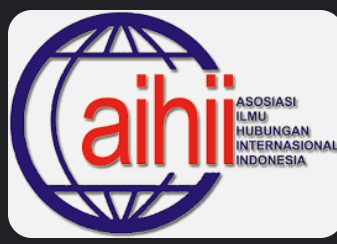The Role of the Indonesian Government in Implementing REDD (Reducing Emissions from Deforestation and forest Degradation) Program Under Former President Yudhoyono
DOI:
https://doi.org/10.33822/mjihi.v3i1.1734Kata Kunci:
REDD, Indonesia, and policyAbstrak
This paper examines the extent to which the Indonesian government has reduced its greenhouse gases emissions coming from deforestation and forest degradation by using REDD program. Such program is highly regarded as a sophisticated instrument to foster collaboration between developing and developed countries in slashing the rate of deforestation. Indonesia itself has enacted the program as a national policy since 2009 under former President Yudhoyono. In this article, the secondary research method is utilized to gather data as well as adopting a qualitative approach to analyse the topic. This paper has found that Indonesia’s policy to curb the emissions from deforestation and forest degradation by conducting REDD program has not yet been successful, because of weaknesses in the implementation. They include the limitation of President’s power in driving policy; the ineffective of information exchange; the inability to do Monitoring, Reporting and Verification (MRV) activities; and contradiction in the decentralization process with regards to REDD implementation. However, some achievements are identified: a slow decline in the rate of deforestation and forest degradation; the continuity partnership between Indonesia and Norway; and the more participation of local stakeholder in supporting REDD program.Referensi
Allen, JC & Barnes, DF 1985, 'The causes of deforestation in developing countries', Annals of the association of American Geographers, vol. 75, no. 2, pp. 163-84.
Angelsen, A & Brockhaus, M 2009, Realising REDD+: National strategy and policy options, CIFOR.
Ardiansyah, F 2009, National Institutional Arrangements for REDD Case Study – Indonesia, 7, WWF-Indonesia.
Brockhaus, M, Obidzinski, K, Dermawan, A, Laumonier, Y & Luttrell, C 2012, 'An overview of forest and land allocation policies in Indonesia: Is the current framework sufficient to meet the needs of REDD+?', Forest policy and economics, vol. 18, pp. 30-7.
Caldecott, J, Indrawan, M, Rinne, P & Halonen, M 2011, Indonesia-Norway REDD+ Partnership: first evaluation of deliverables.
DeFries, R, Achard, F, Brown, S, Herold, M, Murdiyarso, D, Schlamadinger, B & de Souza, C 2007, 'Earth observations for estimating greenhouse gas emissions from deforestation in developing countries', Environmental science & policy, vol. 10, no. 4, pp. 385-94.
Dehm, J 2012, ''REDD faces all around': Implementing reducing emissions from deforestation and forest degradation in Indonesia', Local-Global: Identity, Security, Community, vol. 10, pp. 98-125.
Dermawan, A, Petkova, E, Sinaga, A, Muhajir, M & Indriatmoko, Y 2011, Preventing the Risks of Corruption in REDD+ in Indonesia, CIFOR.
FAO 2010, 'Global Forest Resouces Assessment ', pp. 1-340.
Fry, I 2008, 'Reducing emissions from deforestation and forest degradation: opportunities and pitfalls in developing a new legal regime', Review of European Community & International Environmental Law, vol. 17, no. 2, pp. 166-82.
Greenpeace 2012, The Indonesia - Norway Agreement to reduce greenhouse gas emissions from deforestation and forest degradation Greenpeace Assessment of Progress, retrieved from <http://www.greenpeace.org/seasia/id/PageFiles/469161/Full%20Report.pdf>.
Hansen, MC, Potapov, PV, Moore, R, Hancher, M, Turubanova, S, Tyukavina, A, Thau, D, Stehman, S, Goetz, S & Loveland, T 2013, 'High-resolution global maps of 21st-century forest cover change', science, vol. 342, no. 6160, pp. 850-3.
Irawan, S & Tacconi, L 2009, 'Reducing emissions from deforestation and forest degradation (REDD) and decentralized forest management', International Forestry Review, vol. 11, no. 4, pp. 427-38.
Irawan, S, Tacconi, L & Ring, I 2013, 'Stakeholders' incentives for land-use change and REDD+: The case of Indonesia', Ecological Economics, vol. 87, pp. 75-83.
Johnstone, N 2010, 'Indonesia in the REDD: Climate Change, Indigenous Peoples and Global Legal Pluralism', APLPJ, vol. 12, p. 93.
Lang, C 2015a, Indonesia’s decision to put the REDD+ Agency in the Ministry of Environment and Forestry is “not in accordance” with Norway’s US$1 billion REDD deal, REDD Monitor, retrieved from <http://www.redd-monitor.org/>.
—— 2015b, Indonesia’s rate of deforestation has doubled under the moratorium, retrieved from <http://www.redd-monitor.org/2013/12/11/indonesias-rate-of-deforestation-has-doubled-under-the-moratorium/>.
Luttrell, C, Resosudarmo, IAP, Muharrom, E, Brockhaus, M & Seymour, F 2014, 'The political context of REDD+ in Indonesia: constituencies for change', Environmental science & policy, vol. 35, pp. 67-75.
Margono, BA, Potapov, PV, Turubanova, S, Stolle, F & Hansen, MC 2014, 'Primary forest cover loss in Indonesia over 2000-2012', Nature Climate Change.
Moeliono, M, Gallemore, C, Santoso, L, Brockhaus, M & Di Gregorio, M 2014, 'Information networks and power: confronting the" wicked problem" of REDD+ in Indonesia', Ecology and Society: a journal of integrative science for resilience and sustainability, vol. 19, no. 2, p. 9.
Okereke, C & Dooley, K 2010, 'Principles of justice in proposals and policy approaches to avoided deforestation: towards a post-Kyoto climate agreement', Global Environmental Change, vol. 20, no. 1, pp. 82-95.
Parlina, I 2015, RI-Norway agree to continue REDD+, The Jakarta Post, retrieved from <http://www.thejakartapost.com/news/2015/04/15/ri-norway-agree-continue-redd.html>.
Pirard, R 2012, 'Market-based instruments for biodiversity and ecosystem services: A lexicon', Environmental science & policy, vol. 19, pp. 59-68.
REDD, U 2009, UN-REDD Programme, retrieved from <http://www.unep.org/forests/REDD/tabid/7189/Default.aspx>.
Santosa, MA, Khatarina, J & Suwana, AS 2013, 'The progress on governing REDD+ in Indonesia', International Journal of Rural Law and Policy, pp. 1-17.
Siscawati, M 1998, 'Underlying causes of deforestation and forest degradation in Indonesia: A case study on forest fire', in the Proceedings of IGES International Workshop on Forest Conservation Strategies for the Asia and Pacific Region, pp. 44-57.
Stavins, RN 2003, 'Experience with market-based environmental policy instruments', Handbook of environmental economics, vol. 1, pp. 355-435.
UN-REDD 2015a, Key results and achievements - Programme in Indonesia, retrieved from <http://www.un-redd.org/Key_results_achievements_Indonesia>.
—— 2015b, UN-REDD in Indonesia, retrieved from <http://www.un-redd.org/CountryActions/Indonesia/tabid/987/language/en-US/Default.aspx>.
—— 2015c, UN-REDD Programme Regions and Partner Countries, retrieved from <http://www.un-redd.org/partner_countries/tabid/102663/default.aspx>.





